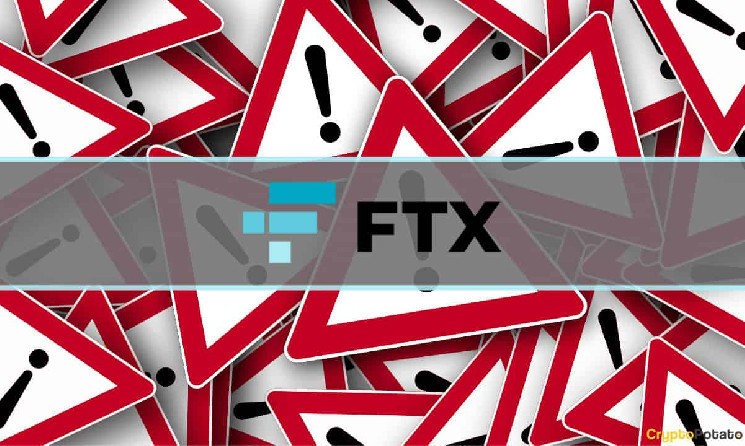How Wide Does FTX Contagion Spread? The Affected Companies So Far

The collapse of the cryptocurrency exchange FTX will go down as one of the darkest moments in crypto’s history. The company experienced severe liquidity issues in November and couldn’t honor the withdrawal requests of its customers.
Binance – the world’s largest crypto platform – was ready to acquire the exchange but, after auditing, walked away from the agreement. FTX could not find a solution and filed for Chapter 11 bankruptcy protection, while CEO Sam Bankman-Fried resigned from his position.
This sent shockwaves through the entire cryptocurrency market. The prices of most digital assets tumbled, with bitcoin dropping below $16,000.
Fears of contagion still plague the market. In the following, we take a look at some of the companies that were impacted by FTX’s downfall.
FTX Contagion Spreading Wide
Liquid Global – a Japanese crypto platform owned by FTX – halted withdrawals shortly after its parent company filed for bankruptcy. The former became a victim of hackers last year and lost over $90 million worth of digital currencies. Back then, FTX secured a $120 million debt financing so Liquid Global could resume its services.
Crypto lending platform Genesis Global Capital also paused withdrawals, explaining that a vast number of customers started taking their assets out of the entity. The “abnormal request” indicated that customers feared their investment could suffer if it stayed in the hands of a centralized organization.
Multicoin Capital – a cryptocurrency venture firm – was also affected. Managing partners Kyle Samani and Tushar Jain admitted that they stored “too many assets on FTX,” putting too much trust in their relationship. The company raised hopes it could retrieve some of its distribution but realized this could be a challenging task since most of them are wrapped in bankruptcy proceedings.
BlockFi – a crypto lending platform coping with significant problems throughout 2022 – had to throw in the towel after the latest events. FTX previously provided a $400 million loan to the firm and offered to acquire it for $240 million. Following the latest events, BlockFi was unsuccessful into resuming its regular course of business and filed for bankruptcy as well.
The List Goes On
The Singaporean state holding company owned by the local government – Temasek – invested $210 million in FTX International and $65 million in FTX US. It informed that the investment has virtually shrunk to zero following the exchange’s decay.
Nonetheless, Singapore’s Deputy Prime Minister – Lawrence Wong – assured that the FTX crisis had a “very little” impact on the local economy since most large financial institutions had not yet hopped on the cryptocurrency bandwagon.
Hedge fund Galois Capital revealed half of its capital was trapped in the troubled exchange. Sources estimate that this amount could be approximately $100 million.
Paradigm – a crypto and Web3-focused venture capital firm – was also “shocked” by the crash. Some reports hinted that it had invested over $270 million in FTX.
Paradigm said this allocation represents “a small part” of their assets, while Matt Huang (Co-Founder of the company) stated he feels “deep regret” for having been involved with a Founder and a trading venue that “did not align with crypto’s values and who have done enormous damage to the ecosystem.”
Europe’s largest digital asset investment and trading group – CoinShares – disclosed that over $30 million, or about 11% of its total net asset value, was stuck on FTX. Mike Novogratz’s crypto financial services firm – Galaxy Digital – held more than $76 million worth of exposure to the distressed entity.
The world’s largest asset manager – BlackRock – is also on the list. CEO Larry Fink revealed his company invested $24 million in FTX prior to the latter’s catastrophe. He also denied commenting on the reasons behind the adverse event, saying people should be aware of the facts before making any speculation:
“I am sure they did the due diligence. Could they have been misled? Could they have done other things? Could we have been misled? Sure… but until we have more facts, I’m not gonna speculate.”
Tiger Global Management – the hedge fund headed by billionaire Chase Coleman – has participated numerous times in FTX’s fundraisers. While the exact amount of losses remains unknown, one could guess Tiger Global has taken a major punch due to the collapse.
Crypto platform Aurus Global faced a “short-term liquidity issue” earlier this week. Its institutional credit underwriter – M11 Credit – assured that both parties had joined forces to limit the risks for customers.






 Bitcoin
Bitcoin  Ethereum
Ethereum  Tether
Tether  USDC
USDC  TRON
TRON  Dogecoin
Dogecoin  Cardano
Cardano  Bitcoin Cash
Bitcoin Cash  Chainlink
Chainlink  LEO Token
LEO Token  Monero
Monero  Zcash
Zcash  Stellar
Stellar  Litecoin
Litecoin  Hedera
Hedera  Dai
Dai  Cronos
Cronos  OKB
OKB  Tether Gold
Tether Gold  Ethereum Classic
Ethereum Classic  KuCoin
KuCoin  Gate
Gate  Algorand
Algorand  Cosmos Hub
Cosmos Hub  VeChain
VeChain  Stacks
Stacks  Tezos
Tezos  Dash
Dash  TrueUSD
TrueUSD  IOTA
IOTA  Basic Attention
Basic Attention  Theta Network
Theta Network  Decred
Decred  NEO
NEO  Synthetix
Synthetix  Qtum
Qtum  Ravencoin
Ravencoin  0x Protocol
0x Protocol  DigiByte
DigiByte  Zilliqa
Zilliqa  Holo
Holo  Siacoin
Siacoin  Nano
Nano  Numeraire
Numeraire  Waves
Waves  Status
Status  Ontology
Ontology  Enjin Coin
Enjin Coin  Hive
Hive  BUSD
BUSD  Lisk
Lisk  Pax Dollar
Pax Dollar  Steem
Steem  Huobi
Huobi  NEM
NEM  OMG Network
OMG Network  Bitcoin Gold
Bitcoin Gold  Augur
Augur  Bitcoin Diamond
Bitcoin Diamond